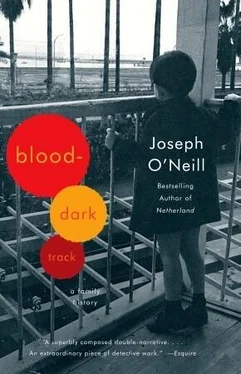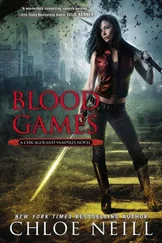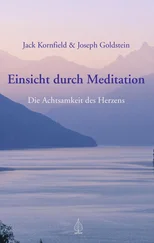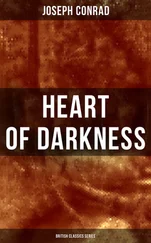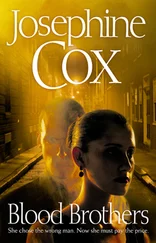‘You see?’ my mother said. ‘You see what you’ve done?’
I returned the key to Mamie Dakad. Joseph Dakad’s papers were locked away once more, not to be seen again until years later.
My first moment of access to the life of my Irish grandfather, Jim O’Neill — and my first clue as to what may have formed his life’s hard, insubstantial heart — was also fortuitous. It took place in The Hague, the city where, in 1970, after series of migrations that had bounced us like a skipping roulette ball through South Africa, Mozambique, Syria, Turkey and Iran, my family came to a permanent halt. In the top shelf of the bookcase in the dining room was a hardback entitled Letters of Fyodor Dostoevsky . Although as a teenager I’d read most of my parents’ books, I’d never been enthused by this one. It had an uncompromising black cover and an unappetising introduction by one Avrahm Yarmalinsky, and Dostoevsky himself, the balding, anxious man in the jacket photograph, whose writing I had not read, did not look like a lot of fun. The Hague, however, is an uneventful place, and eventually I found myself idly leafing through the Letters ; and I encountered, trapped in the book’s thick pages, two newspaper clips.
The first read as follows:
O’NEILL (Cork and Ardkitt, Enniskean) — On September 6, 1973, at the South Infirmary, James, beloved husband of Eileen (née Lynch), Dún Ard, Southlodge, Browningstown Park (1st. Batt., First Cork Brigade, I.R.A.). Deeply regretted by his loving wife and family. Funeral on today (Saturday) after 2.30 o’clock Mass at our Lady of Lourdes Church, Ballinlough, to St Michael’s Cemetery, Blackrock.
The second cutting was an article headed Around the G.A.A. Clubs .
St Vincents . It was with the deepest regret that we learned of the passing away of our esteemed member, Mr. Jim O’Neill, during the past week. Beannacht De ar a anam.
For many years Jim had been a staunch worker in our club. He held many positions over the years, but for him no job was too big or menial where St. Vincents was concerned. He was behind much of our early plan making, nevertheless when those plans dictated the arduous work it took to fulfil them, Jim was oft times only too willing to undertake that work. Over a period of 22 years in which I knew him, he proved to be a true Gael. Ever mindful of our beautiful Gaelic culture, he had a life-time dedication to the cause of one united Ireland. In character he was straight and true. I remember 12 years ago being in employment with Jim. I happened one day to remark to him the briskness and dedication he put to his work. He replied that he was morally bound to give a just return for his pay. This was the honesty and directness I learned to expect always from him. Four of his sons, Brendan, Padraig, Kevin and Terry, have been stalwart members of our club down through the years. On behalf of St. Vincents I tender to his wife and family our sincere deepest sympathy.
The sudden palpability of my grandfather, of whom I knew and remembered next to nothing, caused in me a lurch of proud affiliation. First Battalion, First Cork Brigade, IRA . There was something appealing about this simple and assured assertion of his soldiership, and there was poetic force in the phrase a true Gael . To me these were glamorous texts, calls from a gritty world of hurling and revolution that was thrillingly distant from the bourgeois, entirely agreeable environment of The Hague. My vague imagining of my grandfather’s rebel world was in terms of the jacket illustration for Guerrilla Days in Ireland by Tom Barry, a tatty paperback memoir that had always occupied an incongruous niche between my mother’s multilingual dictionaries and volumes of French literature. The illustration is of an IRA ambush at dusk on a deserted country road in West Cork, the sky burgundy, the sunken day a low-lying mass of yellow. A convoy of trucks is turning into view, and waiting to jump them are a smart officer in a blue jacket and a tie, who is holding a pistol, and two sturdy, rifle-toting fellows in rough shirts. It is a colourful, quasi-fictional scene in the style of a boys’ comic, and speaks of cold, adventurous nights and clean-cut valour.
Hurling, on the other hand, I knew something about. Hurling was the fastest field sport in the world and required great skill and guts from its players. It was a wild, precise game in which the ball was kicked and fisted and swiped with flattened hockey sticks, the object being to score in goals that combined rugby uprights and soccer nets. It was gorgeous mayhem. My father, Kevin O’Neill, had played top-class hurling for his club, St Vincents, and county, Cork, losing half a mouthful of teeth and gaining a network of forehead scars in the process. I had played the game myself in the field behind my grandmother’s house, and knew the pleasure of juggling the ball on the hurley and skimming it through the air with a cack-handed thwack. The O’Neills were crazy about sports. They played Gaelic football — at which my father had also fleetingly represented Cork — golf, athletics and, in the case of my younger uncles, the English games of soccer and rugby. Grandma O’Neill’s house, the detached house where she has lived since the ’sixties, was full of the prizes her seven sons had won; entering her dining room felt like entering the trophy room of Real Madrid or Manchester United, the walls densely hung with ribbons and medals, the fireplace loaded with pewter cups on which silvery hurlers and footballers teetered.
Their love of games apart, I knew little about the O’Neills. By contrast with Mersin, where I had spent practically every summer of my life, I had only visited Cork intermittently. My father had nine brothers and sisters (in order of seniority: Jim, Brendan, Padraig, Terry, Ann, Declan, Angela, Marian, Fergus) who between them had nine spouses and more than thirty children, and keeping track of them all from Holland was a tall order. I knew my uncle Brendan and his family, but after that it became trickier. My aunts and uncles were warm but inevitably distant older figures, my cousins youngsters and elusive; at any rate, more elusive than my Turkish cousins, whom I saw most summers and whose itineraries as students of medicine, economics, dentistry and computer studies fitted easily into the professional grid with which I was brought up to view the world. And whereas Dakads were to be found in Paris, Nice, Lausanne, Istanbul, Lyon and San Francisco, the strewage of work and study and marriage, the O’Neills stayed put in Cork.
A decade or so later, I re-opened Dostoevsky’s Letters . The death notices were still there. No doubt my father had received the cuttings from his mother, who snips out and files newspaper articles that catch her interest. Often, these have to do with her grandchildren — the musical exploits of Seán, who was briefly a rock star, the swimming results of Ciaran, the picture of Deirdre at the pony club, the mention of Clodagh in her school magazine — but just as often they have to do with politics. You’ll find reports on the jailing of uncle Brendan for refusal to pay services charges imposed by Cork City Corporation (‘Union Chief Jailed’, Cork Examiner ); on the welfare of the South Yorkshire miners during the year-long British miners’ strike (‘A Conquered People’, Irish Times ); on the decision of the Irish government to inform the British government of IRA plans to mount a military campaign in Northern Ireland (‘A People Betrayed’, Irish Republican Bulletin , 1957); on the life and death of Mairead Farrell, the IRA volunteer killed by British forces in Gibraltar (‘From Teenage Recruit to Prison Leader’, Irish Times ).
There is a pronounced, almost comical, contrast between, on the one hand, Grandma’s appearance and civilian goodness and, on the other hand, her militaristic political stance. To appreciate the contrariety, you have to understand that Grandma is five foot nothing and a wonder of friendliness. She has curly white hair, clear blue eyes and a girlish, irresistible chortle. Aside from occasional attacks of sciatica, she is a model of health and energy which, even in her late eighties, she devotes to organizing meals on wheels for the elderly, going to Mass, promoting raffles and lotteries in good causes, visiting the sick, and saying rosaries for friends and family in need. All day she receives a stream of visitors — neighbours, children, old pals — in her kitchen, fixing them up with snacks and cups of milky tea. She remembers every birthday of her ten children and thirty-six grandchildren and ever-multiplying great-grandchildren, and she remembers every person who has lived on her street and every disease that has afflicted them. She is unflinching in her love of her family and, remarkably, is somehow able to care for all of us deeply and appropriately. She follows all major international events at which Ireland is represented, from the Eurovision Song Festival to the soccer World Cup to the women’s 5000 metres in the Olympic Games. She is an honorary member of British National Union of Miners, South Wales Area (in 1984, she put up striking miners in her home for months). She boycotts retailers such as Dunnes Stores for breaking the South African trade embargo and mistreating their employees. She is an unblinking supporter of the cause of a united Ireland. She is a veteran of Cumann na mBan, the women’s republican organization. She has given shelter to the most wanted men in the country. She has stored guns under the floorboards.
Читать дальше
Конец ознакомительного отрывка
Купить книгу
